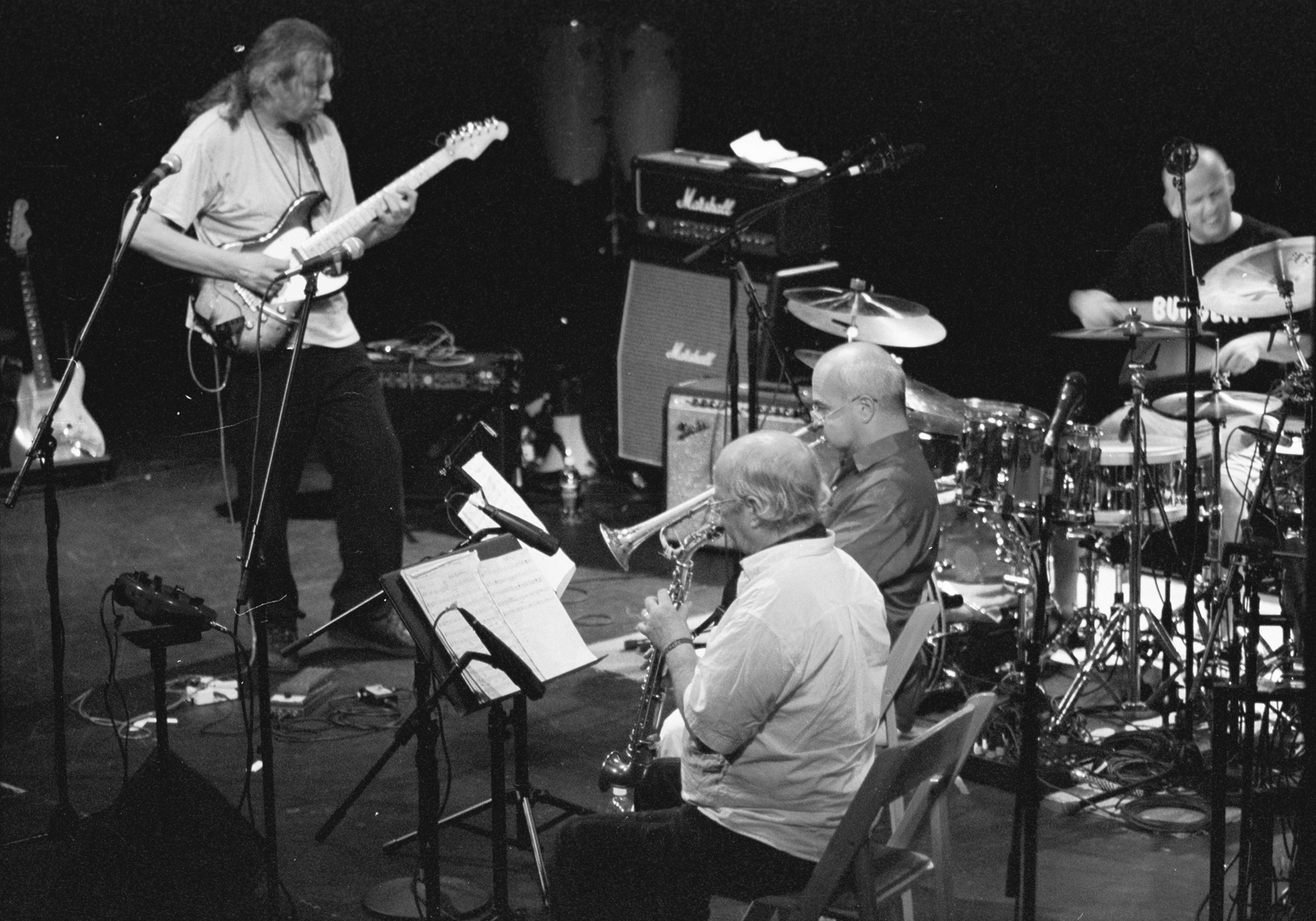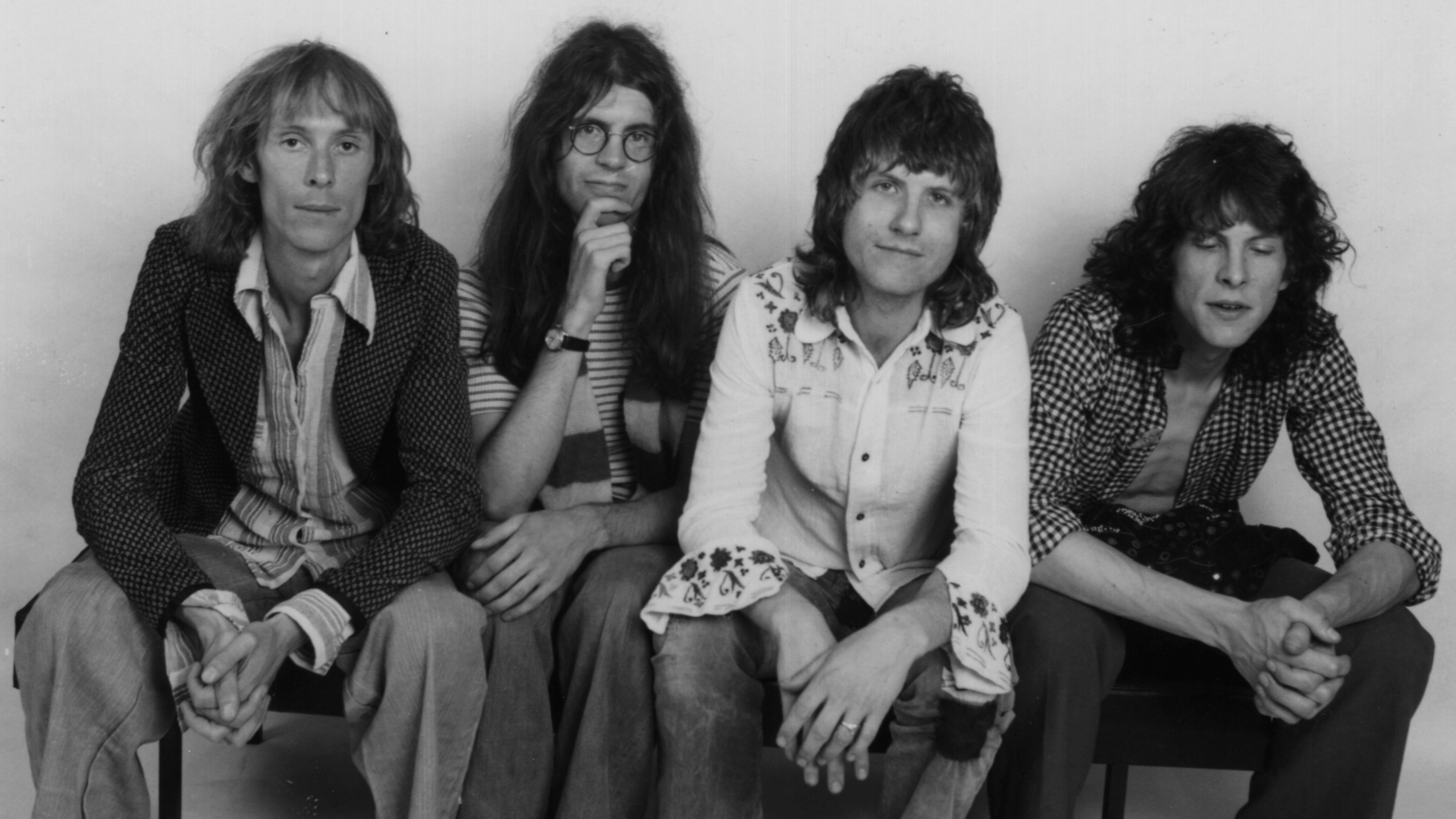The death of Phil Miller announced yesterday evening robs progressive music of one of its most distinctive voices. The guitarist, whose work with a string of bands that included Delivery, Matching Mole, Hatfield And The North, National Health and his own outfit, In Cahoots, came to define the Canterbury scene.
Born in 1949, having grown up in Sawbridgeworth in Hertfordshire with his friend and future colleague, Pip Pyle, Miller was often bemused the Canterbury connection. “It’s a bit artificial although I use the term myself just because it helps some people understand roughly the stylistic area that the music is in. People like to have pigeon holes in which to put things. I’m sure I do myself. It’s human nature,” he told me in 2015.
In concert, Phil Miller struck an interesting if sometimes eccentric-looking figure. With his head craning over the neck of his guitar, and tongue, ever so slightly protruding from the corner of his mouth, he resembled a professor grappling with an inordinately complex equation or theoretical problem. Agonised facial expressions often accompanied his fevered calculations across the fretboard as he navigated the intricacies of both his own compositions and those of his bandmates.
A fan of early John Mayall groups and in later years the work of John McLaughlin, Mike Gibbs, Herbie Hancock, and particularly, Weather Report, his playing was fluid and discursive but cleverly avoided any hint of cliches found either in rock or more fusion-orientated music.
A significant part of Miller’s charm was a complete lack of showiness in whatever band he was in. Where the structures were relatively open he could soar, free and wild and bring it back into the piece with remarkable precision. If the music demanded something simple he’d happily oblige, as on Mumps from 1975’s The Rotters’ Club, where he sustains a single note for twenty seconds. Somehow it sounds epic.

When soloing he could wail and roar though his melodic lines rarely followed the obvious, well-travelled route, preferring instead to take the listener on strange and sometimes unexpectedly angular directions.
Watching him in concert there was the impression of man deep in conversation with his muse while simultaneously reporting back on the strange and interesting shapes and tonal colours he found along the way.
An impressive accompanist, he provided Robert Wyatt with the reflective pastoral chimes of God Song in Matching Mole, and added vibrant layers to Richard Sinclair’s Fol De Rol. An incisive rhythm player, capable of transcribing the dazzling chordal work of Django Reinhardt at the drop of a hat, his 1992 album, Double Up, with Fred T Baker, and the many recordings with his own band, In Cahoots which featured his own writing, provided eloquent testimony to the extent of the harmonic firepower he had at his fingertips.
Amidst the absurdly difficult time signatures of the music found on Matching Mole’s Little Red Record, Hatfield and The North’s two studio albums and those of National Health, for which he will always be remembered and associated with, his tone and the scurrying notes and chords which tripped and danced from his guitar were something that would make you smile as much as drop your jaw in shock and surprise at what you’d just heard.
However, what was really attractive and defining about Phil Miller’s distinctive contributions to this music wasn’t so much the obvious technical ability available to him, but the way in which he managed to imbue it all with a quality that was self-deprecating, warm and welcoming. Much like the man himself.

